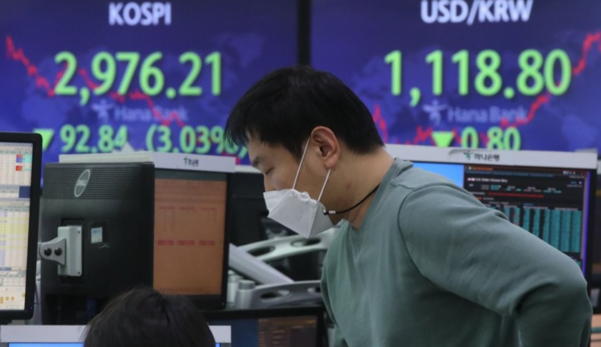Input 2021.01.29 15:54 | Revision 2021.01.29 16:01
On the 29th, the won-dollar exchange rate at the Seoul foreign exchange market ended at 1118.8 won, down 0.8 won from the previous trading day.
The exchange rate started at 1114 won, down 5.6 won from the previous day’s closing price (1119.60), which was the highest in about two and a half months. Around 2 pm, it turned upward to 1119.7 and then increased the increase to 1121.50 won during the intraday. It is the largest increase since March 23 (20.0 won) last year, and is the highest since November 6 (1120.40 won) last year in terms of closing price. However, it remained flat after a slight decline.

The KOSPI index closed at 2,976.21, down 3.03% from the previous day, and became’Black Friday’. Foreigners net sold 1,441.3 billion won in the securities market and 2,53.7 billion won by institutions, which lowered the stock price. Individuals net bought 2152 billion won, but the KOSPI fell for 4 consecutive days.
This is due to the unrest in the US stock market triggered by the’Game Stop’ incident. On the 27th, the three indexes in New York recorded a sharp decline of 2% at the same time. Stock prices are falling. Along with this, the US futures index has also plummeted, increasing anxiety over the US economy as a whole and reinforcing risk aversion sentiment.
Seungji Jeon, a researcher at Samsung Futures said, “The reason the retracement was not great is that the dollar is showing strong strength in conjunction with foreign stock selling as hedging sentiment in the market has grown stronger.” An uneasy aftermath,” he explained.
